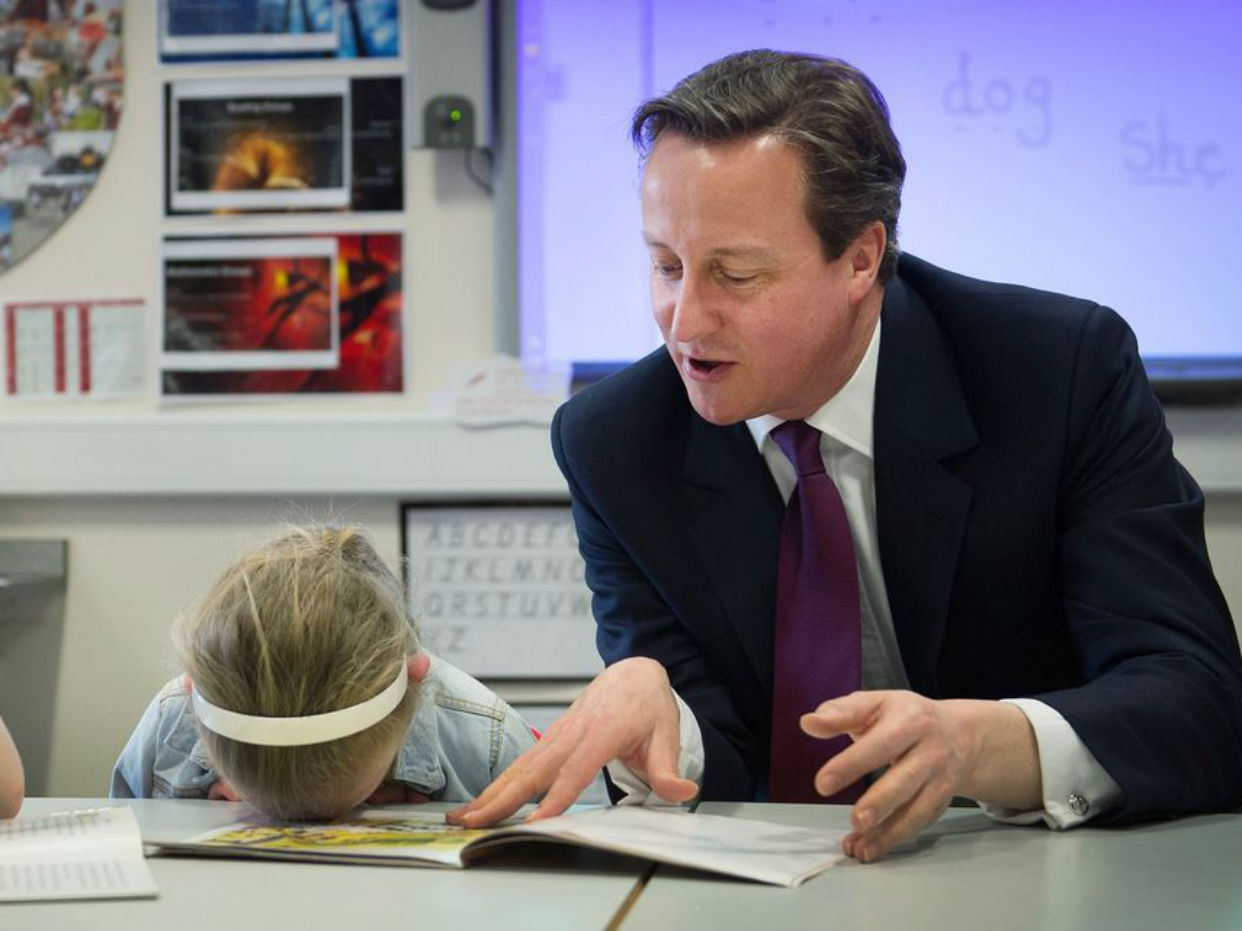Why IQ levels are falling
Study shows young people’s intelligence scores have been dropping since the 1990s

A free daily email with the biggest news stories of the day – and the best features from TheWeek.com
You are now subscribed
Your newsletter sign-up was successful
The IQ levels of young people have been steadily falling for the past few decades, according to new research.
The decline is believed to have begun following the generation born in 1975, and indicates that the slow rise in intelligence observed over much of the 20th century has come to an end, says The Times.
Average IQs had risen by roughly three percentage points every decade since the Second World War, in a poorly understood trend known as the Flynn effect.
The Week
Escape your echo chamber. Get the facts behind the news, plus analysis from multiple perspectives.

Sign up for The Week's Free Newsletters
From our morning news briefing to a weekly Good News Newsletter, get the best of The Week delivered directly to your inbox.
From our morning news briefing to a weekly Good News Newsletter, get the best of The Week delivered directly to your inbox.
However, the new study, by Norwegian researchers, found that men’s IQs are measurably lower today than the scores of their fathers at the same age. Ole Rogeberg and Bernt Bratsberg, of the Ragnar Frisch Centre for Economic Research in Oslo, analysed the scores from a standardised IQ test taken by more than 730,000 Norwegian men who reported for national service between 1970 and 2009.
The results, published in the journal Proceedings of the National Academy of Sciences of the United States of America, or PNAS, show that those born in 1991 scored about five points lower than those born in 1975.
“This is the most convincing evidence yet of a reversal of the Flynn effect,” said Stuart Ritchie, a psychologist at the University of Edinburgh who was not involved in the research. “If you assume their model is correct, the results are impressive, and pretty worrying.”
The reasons for the Flynn effect and its apparent reversal are disputed. “Scientists have put the rise in IQ down to better teaching, nutrition, healthcare and even artificial lighting,” says The Times.
A free daily email with the biggest news stories of the day – and the best features from TheWeek.com
But “it is also possible that the nature of intelligence is changing in the digital age and cannot be captured with traditional IQ tests”, adds the newspaper.
An international study at the end of last year pointed towards the onset of technology as hindering the development of young people.
Researcher Michael Shayer, who co-authored the report, told Euronews that since 1995 a “large social force has been interfering with children’s development of thinking, getting larger each year”.
This “social force” includes the development of technology, such as game consoles and smartphones, “which have altered the way that children communicate with each other”, he explained.
“Take 14-year-olds in Britain. What 25% could do back in 1994, now only 5% can do,” Shayer added, citing maths and science tests.
Robin Morris, professor of neuropsychology at King’s College London, told The Times that IQ scores probably had hit a ceiling in the West, but there was not yet any reason to be unduly concerned.
“I think the reverse Flynn effect is real but would urge caution about generalising based on one sample,” he said. “Probably the tailing off is a general effect in high-income countries in which the contributor factors generally stabilise.”
-
 Political cartoons for February 15
Political cartoons for February 15Cartoons Sunday's political cartoons include political ventriloquism, Europe in the middle, and more
-
 The broken water companies failing England and Wales
The broken water companies failing England and WalesExplainer With rising bills, deteriorating river health and a lack of investment, regulators face an uphill battle to stabilise the industry
-
 A thrilling foodie city in northern Japan
A thrilling foodie city in northern JapanThe Week Recommends The food scene here is ‘unspoilt’ and ‘fun’
-
 Epstein files topple law CEO, roil UK government
Epstein files topple law CEO, roil UK governmentSpeed Read Peter Mandelson, Britain’s former ambassador to the US, is caught up in the scandal
-
 Iran and US prepare to meet after skirmishes
Iran and US prepare to meet after skirmishesSpeed Read The incident comes amid heightened tensions in the Middle East
-
 Israel retrieves final hostage’s body from Gaza
Israel retrieves final hostage’s body from GazaSpeed Read The 24-year-old police officer was killed during the initial Hamas attack
-
 China’s Xi targets top general in growing purge
China’s Xi targets top general in growing purgeSpeed Read Zhang Youxia is being investigated over ‘grave violations’ of the law
-
 Panama and Canada are negotiating over a crucial copper mine
Panama and Canada are negotiating over a crucial copper mineIn the Spotlight Panama is set to make a final decision on the mine this summer
-
 The rise of the spymaster: a ‘tectonic shift’ in Ukraine’s politics
The rise of the spymaster: a ‘tectonic shift’ in Ukraine’s politicsIn the Spotlight President Zelenskyy’s new chief of staff, former head of military intelligence Kyrylo Budanov, is widely viewed as a potential successor
-
 Why Greenland’s natural resources are nearly impossible to mine
Why Greenland’s natural resources are nearly impossible to mineThe Explainer The country’s natural landscape makes the task extremely difficult
-
 Iran cuts internet as protests escalate
Iran cuts internet as protests escalateSpeed Reada Government buildings across the country have been set on fire